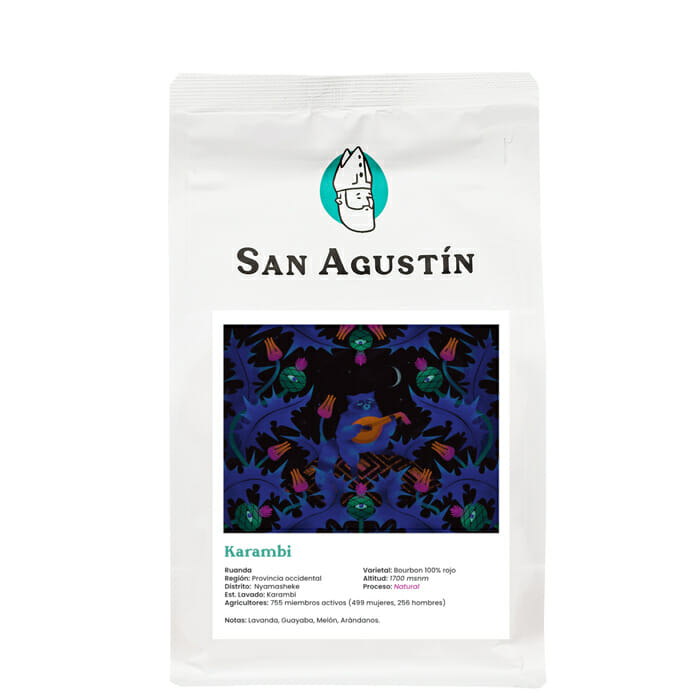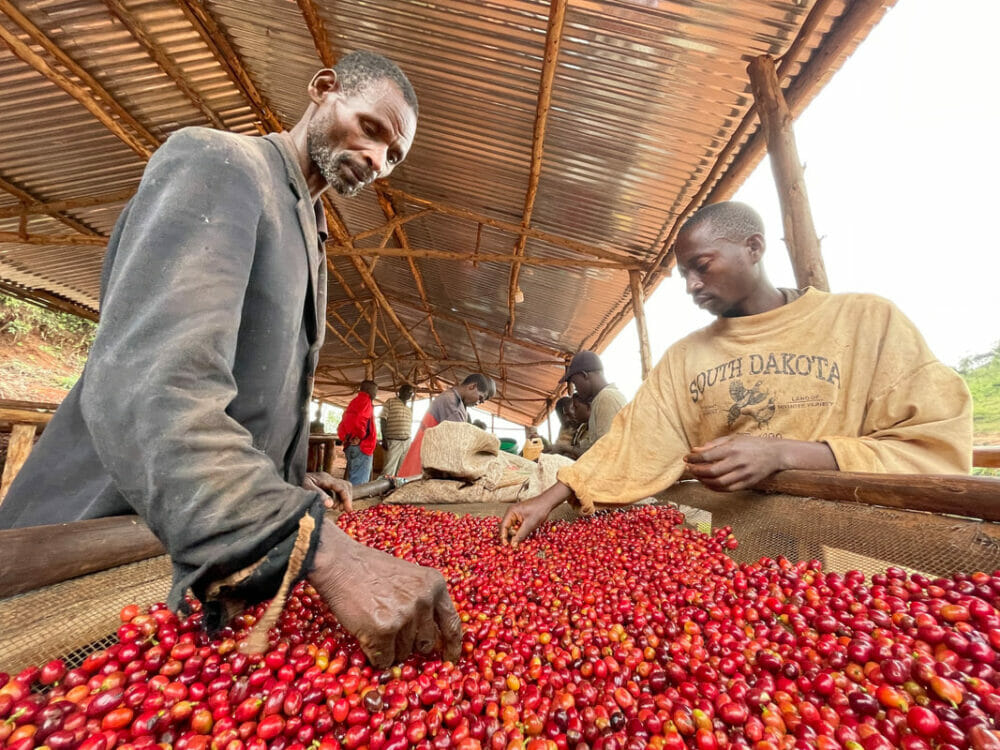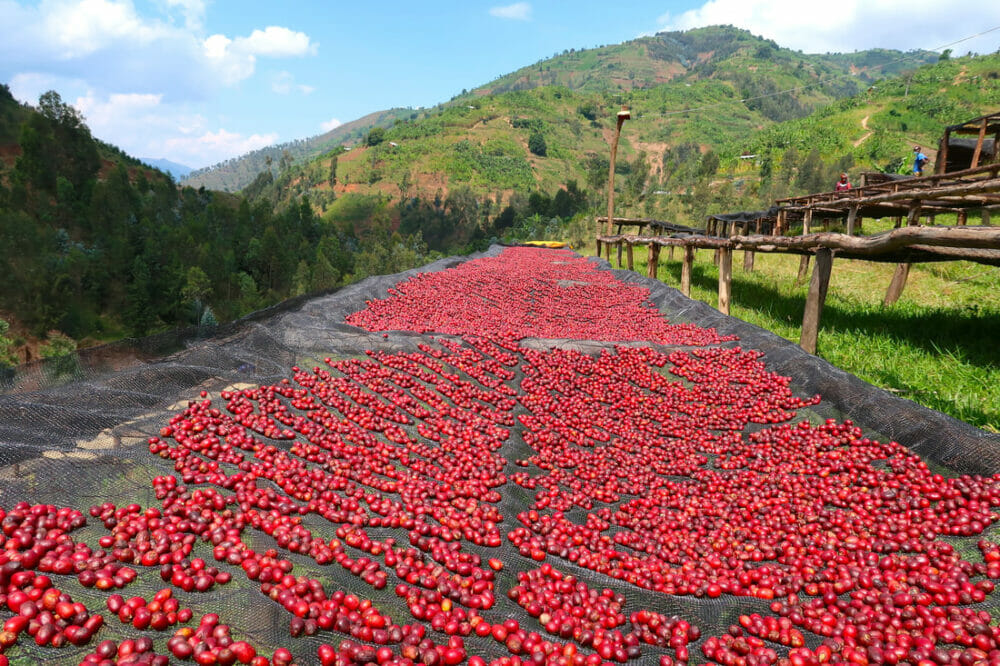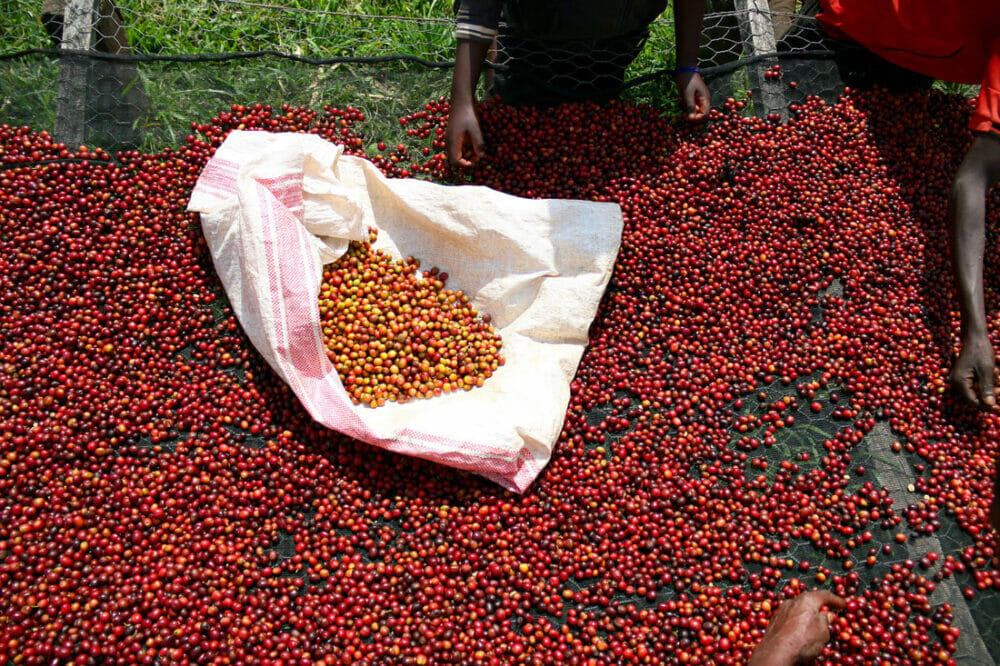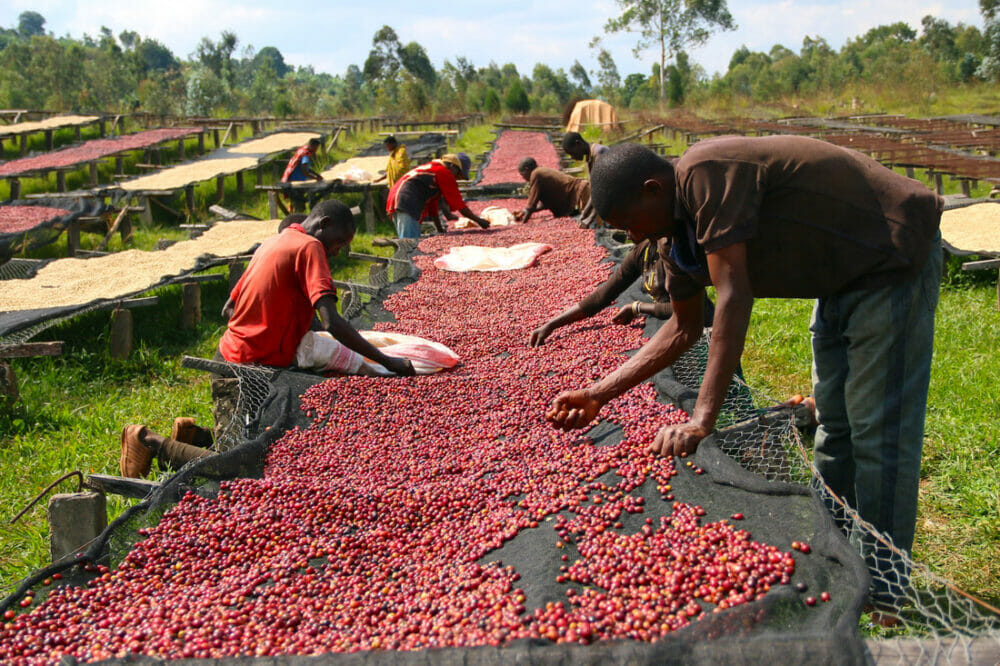Description
A washing station in the Kivu-Nyungwe region that offers a wide variety of processing and grading processes to produce the finest natural coffee.
Not far from the majestic Lake Kivu and Nyungwe National Park lies Karambi, a washing station named after the town where it is located. Karambi's altitude is 1,700 meters above sea level, and coffee is grown at over 2,000 meters on the surrounding mountain slopes.
The station was created to purchase coffee from smallholder farmers in the area, many of whom also work on-site, processing and preparing the coffee for export. Karambi serves a wide range of farmers in the region, and more than 661,000 women are among the farmers who deliver to the station.
Quality grading begins immediately after delivery to the washing station (or drying station in this case). Unripe cherries are separated by flotation in water tanks. Karambi produces wet (fully washed) coffees, honey (honey) coffees, and dry (natural) coffees. All undergo intensive grading to ensure that the A1 grade is composed of the densest beans.
This is a naturally processed batch, and in terms of flavor and aroma, we believe it will meet the expectations of even the most discerning tasters. It has an intense melon-like sweetness, berry-like acidity, and a silky body that you'll love. It produces an excellent cup profile both in filter and espresso (only if you like your espressos funky, of course), and we're not exaggerating when we say it's one of the best naturals we've ever offered.
HISTORY
Rwanda has overcome a dark past to become one of Africa's safest and most prosperous nations. Currently, the coffee industry is one of the country's main economic drivers, accounting for more than 401% of the total value of agricultural exports. Approximately 420,000 people are involved in some way in the coffee industry, and stable prices for high-quality coffees have improved the quality of life for many coffee farmers and their families. Furthermore, coffee has also contributed to reconciliation between the Hutu and Tutsi ethnic groups, as they have seen themselves working together to produce more and better coffee.
VARIETY
Although coffee is believed to have its roots in Ethiopia, it was in Yemen that coffee cultivation and the coffee industry developed. The most important Arabica coffee variety, known as Bourbon and Typica, was brought to Yemen from Ethiopia and later spread throughout the world. The French attempted to introduce coffee cultivation to Bourbon Island (now Réunion Island) three times in the 18th century, but only a few of the plants from the second and third introductions were successful. Bourbon coffee did not spread beyond the island until the mid-19th century.
French missionaries played an important role in the spread of the Bourbons in Africa. In 1841, the first mission was established in La Réunion. From there, a mission was established in Zanzibar in 1859. From Zanzibar, a mission was established in 1862 on the Bagamoyo coast (Tanzania, then called Tanganyika), another in St. Augustine (Kikuyu, Kenya), and another in 1893 in Bura (Taita Hills, Kenya). Coffee seeds brought from La Réunion were planted in each of the missions.
In 1904, German missionaries brought coffee to Rwanda. The first coffee trees were planted at the Mibirizi mission in Cyangugu province. This mission gives its name to the first Rwandan coffee variety, a natural mutation of the Bourbon variety. Gradually, coffee cultivation spread to Lake Kivu and then to the rest of Rwanda. In 1930, coffee cultivation became compulsory for many farmers in the country, replicating the colonial model that the Belgians had imposed on Burundi.

